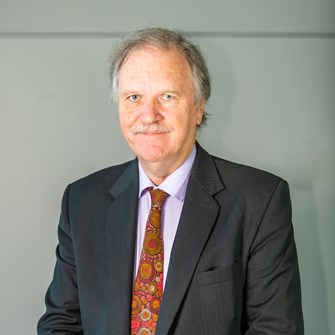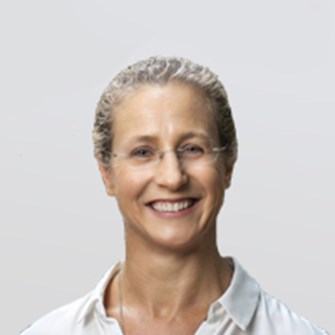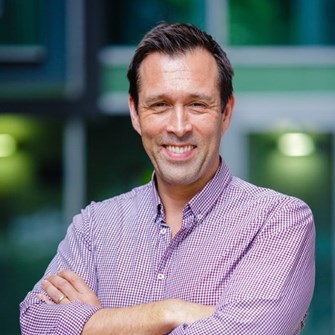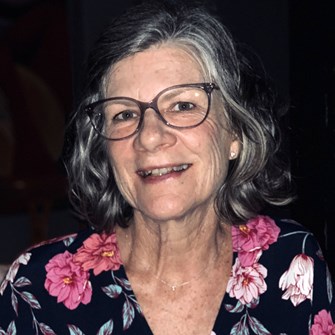Stroke Prevention Advisory Committee
The Stroke Prevention Advisory Committee is a sub-committee of the Clinical Council that acts within the authority of, and assists the Clinical Council to provide advice on health promotion policy, resources and program activity.
-

Professor Mark Harris
Professor Harris has been a Foundation Professor of General Practice at UNSW since 1993, and a Scientia Professor since 2013. Professor Harris has been the Executive Director of the UNSW Centre for Primary Health Care and Equity since 2005, and the Deputy Director of the…Read more Read lessProfessor Harris has been a Foundation Professor of General Practice at UNSW since 1993, and a Scientia Professor since 2013. Professor Harris has been the Executive Director of the UNSW Centre for Primary Health Care and Equity since 2005, and the Deputy Director of the UNSW Translational Cancer Research Network since 2014.
He is recognised as a leader in primary care research, and his research into prevention and management of chronic disease in primary health care has led to the development of better practice in the sector. Professor Harris has conducted previous trials in general practice and community health services on preventive care, including a project on Implementing Guidelines for Preventive Care in General Practice, and a Centre of Research Excellence on the Management and Prevention of Obesity in Primary Health Care.
Professor Harris currently leads a large trial of mobile health in preventive care for patients with low health literacy in general practice, and an implementation trial of a web-based interactive shared care plan for cancer survivors. He has conducted health equity research with many socially disadvantaged groups (Aboriginal and refugee populations), which have informed policy and services for these populations in primary health care and non-government organisations.
He has been a member of the Quality Committee and Prevention and Community Medicine Committees of the RACGP for 25 years, and a member of the NHMRC Translation Faculty and Prevention and Community Health Committee, RACGP Quality Committee, National Heart Foundation Clinical Issues Committee and state government and Local Health District advisory groups. He received the North American Primary Care Research Group’s President’s award in 2017 for his contribution to primary healthcare research.
Professor Harris has a Bachelor of Medicine, Bachelor of Surgery and Doctor of Medicine both from the University of Sydney, and he is a Fellow of the Royal Australian College of General Practitioners (RACGP) (Honorary Life Fellow since 2009). He has almost 400 publications in peer-reviewed journals and over 5000 citations. -

Professor Simone Pettigrew
Professor Pettigrew is the Head of Food Policy at The George Institute for Global Health. Her areas of expertise include behavioural psychology, consumer research, social marketing, health promotion, health policy, and intervention research. Her research focus is in the area of health promotion and how…Read more Read lessProfessor Pettigrew is the Head of Food Policy at The George Institute for Global Health. Her areas of expertise include behavioural psychology, consumer research, social marketing, health promotion, health policy, and intervention research. Her research focus is in the area of health promotion and how to encourage individuals to make behavioural changes to improve their health. Specific health issues of interest include obesity, nutrition, physical activity, alcohol consumption, tobacco use, mental health, and ageing. Much of her work focuses on vulnerable populations, especially children, seniors, and low-income families. She regularly undertakes research projects and consultancies for NGOs and government entities.
Professor Pettigrew holds a Bachelor of economics, a Master of commerce, and a PhD in consumer research. She has over 350 refereed publications and has produced more than 140 technical reports for stakeholders. Professor Pettigrew has been awarded more than $12 million in competitive and commissioned research funding.
-

Dr Siobhan Hickling
Dr Hickling is a nutritionist/dietitian with twenty years of experience in population health research, teaching, service and practice. She played a pivotal role in establishing and coordinating the VITATOPS study – a major international trial of folate in the prevention of stroke and was a…Read more Read lessDr Hickling is a nutritionist/dietitian with twenty years of experience in population health research, teaching, service and practice.
She played a pivotal role in establishing and coordinating the VITATOPS study – a major international trial of folate in the prevention of stroke and was a member of the Steering Committee. She has collaborated on a number of nutritional epidemiological projects with a particular focus on dietary assessment and cardiovascular disease epidemiology, and on projects examining the association and influence of the built environment on eating behaviours, monitoring the impact of mandatory folate fortification on Indigenous and non-indigenous Australians, dietary intake and depressive symptoms in children and adolescents and dietary intake and cognitive development in children and adolescents.
Dr Hickling is a member of the Cardiovascular Research Leadership Team in the School of Population and Global Health of UWA. Dr Hickling’s master’s research was recognised by the Public Health Association of Australia through its Student Award for Outstanding Academic Achievement. She secured, in open competition, a prestigious Healthway scholarship and was awarded a University of Western Australia Teaching Scholarship and a National Heart Foundation Postdoctoral Fellowship. -

Associate Professor Nicholas Gilson
Nicholas Gilson is an Associate Professor at the School of Human Movement Studies, the University of Queensland. He has an internationally recognised research profile in measuring, understanding, and influencing physical activity, sedentary behaviour and health in workers and high-risk populations. He has expertise in designing…Read more Read lessNicholas Gilson is an Associate Professor at the School of Human Movement Studies, the University of Queensland. He has an internationally recognised research profile in measuring, understanding, and influencing physical activity, sedentary behaviour and health in workers and high-risk populations. He has expertise in designing multi-level (individual, environmental, policy) behaviour change strategies that use multimethod (quantitative and qualitative) approaches to evaluate impact on chronic disease, with a view to translating evidence into practice.
Associate Professor Gilson has led multi-disciplinary research teams that have developed and tested a range of innovative physical activity programs. Examples of funded research includes a community-based physical activity program for Department of Veterans’ Affairs clients, two Australian Heart Foundation Vanguard Grants (the most recent of which investigated high intensity exercise in truck drivers), and two Queensland Industry Grants targeting transport, construction, mining, and factory workers.
He completed his undergraduate degree (Human Movement Studies) and PhD at Leeds Metropolitan University, UK. His first post-doctoral position was at Liverpool Hope University College, UK where he lectured in Exercise Science (1997-2001). Prior to moving to the University of Queensland he was a Senior and Principal Lecturer in Exercise Science and Health within the Carnegie Faculty, Leeds Metropolitan University.
-

Kim Beesley
Kim, from regional New South Wales, is the mother of a young stroke survivor. Her daughter Emma, a lawyer, had a stroke at the age of 33 in September 2016. She has ongoing paralysis of her right arm, hand, and ankle, and also has aphasia.…Read more Read lessKim, from regional New South Wales, is the mother of a young stroke survivor. Her daughter Emma, a lawyer, had a stroke at the age of 33 in September 2016. She has ongoing paralysis of her right arm, hand, and ankle, and also has aphasia.
It came as a complete shock to Kim and the rest of the family that stroke could affect someone young and fit. Emma has made significant gains despite an experience of rehabilitation that was not ideal. This experience included a lack of understanding of aphasia and the mental health challenges it can cause. As a result, Kim has an overwhelming desire to help spread awareness of young stroke and of the challenges carers face, and to advocate for more widespread understanding of the invisible disability that is aphasia.
Kim is currently the Secretary of the Australian Aphasia Association and a member of the Aphasia Centre for Research Excellence Consumer Advisory Group. She has a Bachelor of Arts; Graduate Diploma in Librarianship and a Graduate Diploma in Teacher Librarianship. She retired in December 2020 after a career as a Teacher Librarian in NSW public schools for 20 years and prior to that working in public, university and technical libraries.
-
Professor David Thomas
Professor Thomas is the Head of the Wellbeing and Preventable Chronic Diseases Division at the Menzies School of Health Research in Darwin. Professor Thomas has worked in Indigenous health and health research for 30 years, including work as a doctor for three Aboriginal community-controlled health…Read more Read lessProfessor Thomas is the Head of the Wellbeing and Preventable Chronic Diseases Division at the Menzies School of Health Research in Darwin. Professor Thomas has worked in Indigenous health and health research for 30 years, including work as a doctor for three Aboriginal community-controlled health services.
Professor Thomas established and has led the Tobacco Control Research Program at Menzies since 2007. He has completed research about many aspects of Indigenous tobacco control, including the national longitudinal study ‘Talking About The Smokes’, an RCT, Cochrane reviews, qualitative research (including the examination of historical tobacco industry documents), evaluations of local and national policies and projects, and monitoring trends in smoking.
Professor Thomas is involved in the translation of research into policy and practice through advocacy, collaborations with policy makers and practitioners, and his membership on several important national and NT committees.
Professor Thomas holds a Bachelor of Medicine and Bachelor of Surgery (University of Sydney), a Diploma of Tropical Medicine and Hygiene (University of Liverpool), and has been a Fellow of the Australasian Faculty of Public Health Medicine since 1993. Professor Thomas completed a Master of Medical Science (Clinical Epidemiology) at the University of Newcastle, and a PhD at the Northern Territory University.
